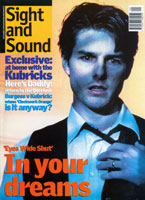Primary navigation

UK 1998
Reviewed by Richard Kelly
Our synopses give away the plot in full, including surprise twists.
A group of friends gather at Sadie's flat, for a wake for her partner, actor Jude, who has died suddenly. Cameramen are present, and Sadie asks that her guests watch footage from a documentary Jude was preparing. They see themselves captured by hidden cameras in various intimate situations (and react with dismay). The men are seen snorting cocaine in Sadie's bathroom, urinating in her sink, rummaging among her soiled underwear. Holly is seen stealing Lisa's purse (Lisa's husband Ray is outraged). Holly derides her sex-life with wheelchair-bound John; John is caught with a prostitute. The wake grows increasingly fractious, unleavened by an intermission during which Bill consoles Lisa and Ray confronts Sadie.
Ray is seen confessing to having beaten Lisa and making a pass at Sadie. Jude played Dominic, Burdis and Bill for saps in a drug deal. Holly found an illicit videotape and attempted to blackmail Jude. (Holly tries to leave, but Bill is barring exits at Sadie's bequest.) The tape captured Jude having sex with Lisa; Ray confronted Jude and killed him. Ray flees the wake, but is apprehended by police.
The propensity of cocaine to turn people into careless, hedonistic, hatefully self-regarding rat-bastards is one of the key themes of Final Cut. It might also be read as an excuse for the film's existence, since one winces through it, sustained by a few grim chuckles, wondering what kind of gross coke binge one has to inflict on oneself before a scenario such as this starts to look like a lively idea. Buñuel could have rewritten it on a cocktail napkin (fuelled by nothing stronger than a few martinis) and made something akin to his The Exterminating Angel (1962). But then Buñuel was happily divorced from the bourgeoisie he so despised; here, a mob of relatively prosperous actors try to impale some footling aspects of their own lifestyles, and expect us to enjoy the prank. Final Cut was privately financed, and has awaited distribution for a year or so. It boasts (and that's le mot juste, one thinks) Jude Law, who's been in a few high-profile things of late, alongside the formidable Ray Winstone, who's been in most British things of late. The helm team of Ray Burdis and Dominic Anciano are also responsible for the BBC's mock-docusoap Operation Good Guys, for which they've won prizes and on which they appear to do everything except make the tea.
Final Cut has North London written all over it; not least that part of N1 which houses the rightly renowned Anna Scher Theatre School. Several cast members are alumni of this academy of drawn-from-life drama, and Burdis and Anciano profess to work by improvisation from a minimal "bible" of scene details. Most of the performers (not least the writer-directors themselves) are very adept at this kind of thing, especially in the bits of rough blokeish humour. But ultimately Final Cut just goes to show that British cinema stands sorely in need of a few good writers. Ideally they should evince an interest in the world beyond the borders of their postcodes.
One has to wonder what sort of hellishly inverted narcissism possessed the cast to put their own names to their 'characters'. Unsurprisingly, the sole exception to this rule is the splendid Perry Benson, whose squat, peevish, thickly bespectacled persona has usually loaned itself to comic relief. Of course, only Alan Clarke ever had the gumption to cast Benson as a romantic hero, in his Play for Today taping of Michael Hastings' Stars of the Roller State Disco (1984). Here, Benson is Tony, the token earnest working-class toiler, who pronounces a few pithy judgements upon the other characters ("They're just a bunch of cunts") and is otherwise sidelined while the rest of the cast do their best to bear out this shallow and mean-spirited exercise.